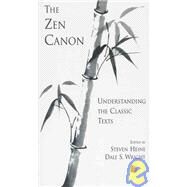- ISBN: 9780195150681 | 0195150686
- Cover: Paperback
- Copyright: 3/25/2004
Bodhidharma, its first patriarch, reputedly said that Zen Buddhismrepresents "a special transmission outside the teaching/Without reliance onwords and letters." This saying, along with the often perplexing use oflanguage (and silence) by Zen masters, gave rise to the notion that Zen is a"lived religion," based strictly on non-linguistic practice and lacking asubstantial canon of sacred texts. Even those who recognize the importance ofZen texts commonly limit their focus to a few select texts without recognizingthe wide variety of Zen literature. This collection of previously unpublishedessays argues that Zen actually has a rich and varied literary heritage. Amongthe most significant textual genres are hagiographic accounts and recordedsayings of individual Zen masters, koan collections and commentaries, and rulesfor monastic life. During times of political turmoil in China and Japan, thesetexts were crucial to the survival and success of Zen, and they have forcenturies been valued by practitioners as vital expressions of the truth of Zen.This volume offers learned yet accessible studies of some of the most importantclassical Zen texts, including some that have received little scholarlyattention (and many of which are accessible only to specialists). Each essayprovides historical, literary, and philosophical commentary on a particular textor genre. Together, they offer a critique of the "de facto canon" that has beencreated by the limited approach of Western scholarship, and demonstrate thatliterature is a diverse and essential part of Zen Buddhism.







